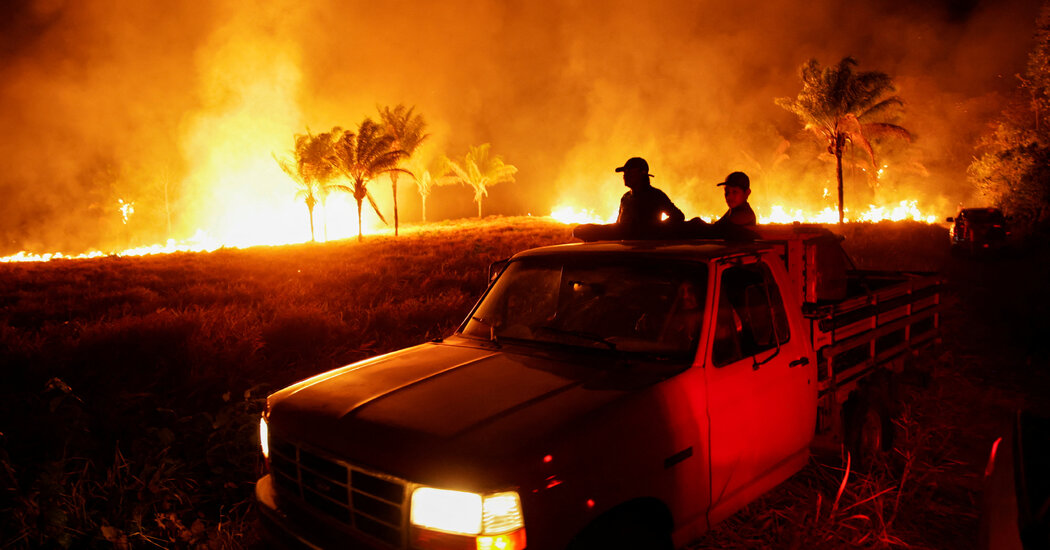The fires in the Amazon, which reaches across nine South American nations, are the result of an extreme drought fueled by climate change, experts said.
The region has been feeling the effects of a natural weather phenomenon known as El Niño, which can worsen dry conditions that were intensified this year by extremely high temperatures.
That has made the rainforest more vulnerable to fast-spreading blazes, said Ane Alencar, the science director at the Amazon Environmental Research Institute in Brazil.
“The climate is leaving forests in South America more flammable,” she said. “It’s creating opportunities for wildfires.”
Fire control is going to be a major engineering challenge on a civilization scale in the upcoming centuries if we want to preserve our carbon sink forests. Should be an interesting challenge, politically, to direct money into it. It’s large scale geoengineering…
For the Amazon, there’s one big trick: don’t cut it down, and restore areas which have already been cut down. Then it stays a lot moister, and you don’t lose the entire thing.
Human life needs to be more valuable than money before anything like that can be implemented.
Hopefully not too depressing of a take, but:
On the scale of the planet as a whole system (looking at the forest, and not the trees): humans are commodity – there are billions upon billions of humans. But there is only one planet, with one atmosphere. If we wait for every human life to have unlimited value in every jurisdiction on earth – we will wait forever. And then it will be too late and we’re all going to fry in our utopian hell on earth.
In whatever jurisdiction you’re in, you should be pushing for large scale planet-affecting changes to how the civilization behaves with regard to our stewardship of the planet.
And yes, you can do both at the same time.
(I’m a huge fan of Iain M Banks’s Culture series. There is a Utopian future that is possible, where everything is simultaneously carefully managed, but individual freedom and prosperity coexists.)
Maybe if we survive the decade we can talk about maybe starting to look into maybe doing something about it. Maybe.
If we survive 20 years I’ll see to it personally that we’ll consider the matter.
Sheeit, consider it considered!
I mean, no one here is doing anything about it.
Good, hopefully we permanently erase humanity.
This is the best summary I could come up with:
A record number of fires so far this year in the Amazon has also raised questions about what may be in store for the world’s biggest tropical rainforest when the dry season starts in June in the far larger southern part of the jungle.
In January, wildfires burned almost 4,000 square miles of the Brazilian Amazon, an almost fourfold increase from the same month last year, according to Mapbiomas, a collective of climate-focused nonprofit organizations and research institutions.
They have burned homes and subsistence crops in several Indigenous villages, leaving a thick haze over rural areas and creating hazardous air quality in the state’s capital, Boa Vista.
Researchers say that most of the fires sweeping through the region were initially set by farmers using the “slash and burn” method to allow new grass to grow on degraded pastures or to fully clear recently deforested land.
This ecosystem, known for its wide-open grasslands and a rare population of wild horses, overlaps with several protected areas, including the Yanomami Indigenous reserve, where illegal mining and forest destruction have led to a humanitarian crisis.
Some of the wildfires started by humans in the Amazon have grown into “megafires,” typically defined as blazes that burn more than 100,000 acres of land or that have an unusually significant effect on people and the environment.
The original article contains 1,143 words, the summary contains 219 words. Saved 81%. I’m a bot and I’m open source!
I hope their cows can eat ashes.





